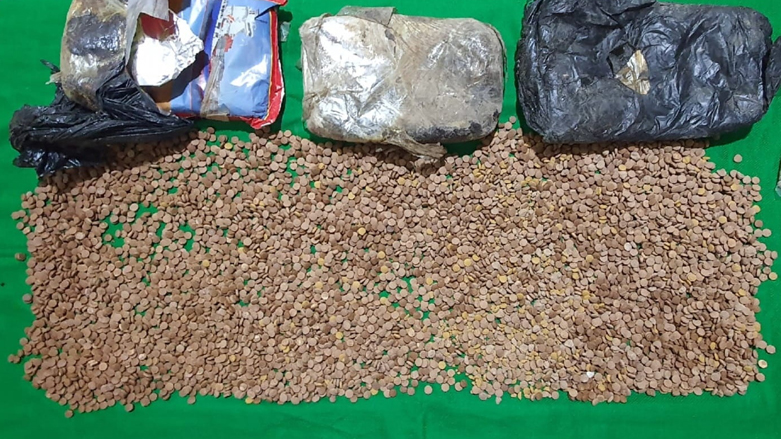U.S. Slams Syria for Narcotics Trade, after launch of Global Coalition against Synthetic Drugs
“Captagon trafficking by the Assad regime and its affiliates poses a significant threat to stability, public health, and rule of law across the Middle East, Europe, North Africa and Asia,” a State Department Spokesperson told Kurdistan 24.

WASHINGTON DC, United States (Kurdistan 24) – Last week, the State Department launched a Global Coalition to Address Synthetic Drug Threats by holding a virtual meeting of the Foreign Ministers of the Coalition.
Read More: U.S. Forming Global Coalition against Synthetic Drugs, including Captagon
The Coalition against Synthetic Drugs includes over 80 countries. Iraq is among them. If this new Global Coalition follows the same procedures as the other Global Coalition established by the U.S. in recent years—the Global Coalition to Defeat ISIS, of which Iraq is also a member—when meetings of the new Coalition are held in person, it is likely that a representative of the Kurdistan Regional Government will be included in the Iraqi delegation.
New Synthetic Drugs Constantly Emerging
In a press briefing on Monday, Todd Robinson, Assistant Secretary of State for International Narcotics and Law Enforcement Affairs, explained that new forms of synthetic drugs are regularly emerging.
“Criminals are constantly innovating to create new synthetic drugs, adjusting formulas to avoid international controls and domestic regulation and creating new demand,” Robinson said.
“Over the past decade,” he continued, vividly illustrating his point, “more than 1,100 new synthetic drugs were detected and reported by the United Nations.”
Syrian Captagon: “Significant Threat” Across the Middle East, Europe, Asia
In the U.S., the big problem is fentanyl, a synthetic opioid, which kills over 100,000 Americans a year. Typically, the precursor chemicals for fentanyl are produced in China and then shipped to Mexico, where the drug is manufactured, before it is smuggled into the U.S.
In the Middle East, including in Iraq and the Kurdistan Region, the more common problem is Captagon, which is manufactured and distributed by the Syrian regime.
A major report issued last fall by the Carnegie Endowment for International Peace explained that the Syrian regime “has transformed” the war-torn country “into one of the world’s leading narcotics enterprises, boasting ports connected to shipping corridors in the Mediterranean in addition to land smuggling routes to Jordan, Lebanon and Iraq—all of which enjoy the protection of the regime’s security apparatus.”
Groups supported by the regime, like Lebanese Hizballah, participate in the Captagon trade as well, the report explained.
Similarly, the Associated Press has reported that “the vast majority of the world’s Captagon is produced in Syria, with smaller production in neighboring Lebanon.”
In 2021, according to the highly-regarded German news magazine, Der Spiegel, the Syrian regime manufactured and sold some $5.7 billion of illicit drugs.”
“Captagon trafficking by the Assad regime and its affiliates poses a significant threat to stability, public health, and rule of law across the Middle East, Europe, North Africa and Asia,” a State Department Spokesperson told Kurdistan 24.
“The drug trade fuels corruption and stifles economic prosperity,” she continued, as she affirmed, “Several U.S government agencies are working to combat Captagon and other drug trafficking through multiple efforts, including traditional law enforcement tools and capabilities, information sharing, and capacity building.”
“We are using all means at our disposal to combat the Captagon scourge,” she concluded.